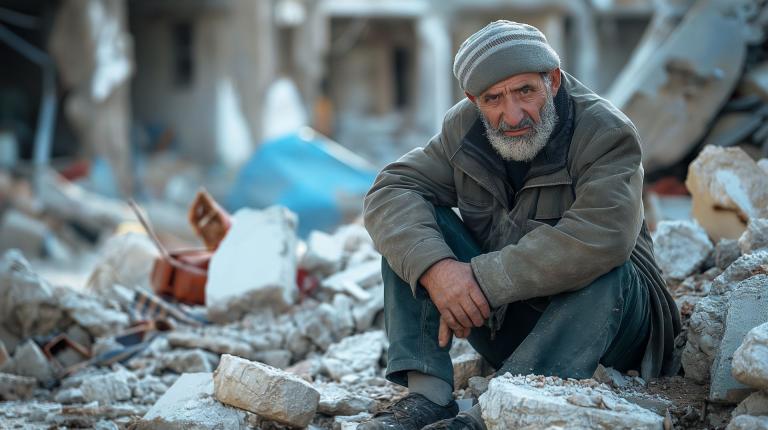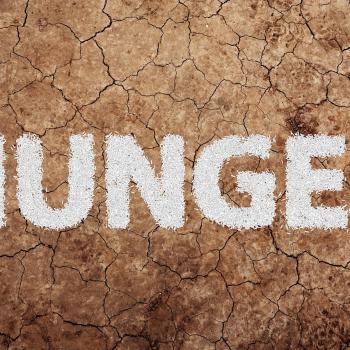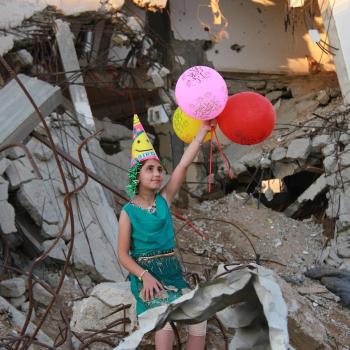
Today is the one year . . . (I don’t see how the word “anniversary” is appropriate). Let me reword this. One year ago today, Hamas broke through the security barrier and launched its terror attack on Israel.
I will be live tonight (October 7, 2024) at 5:00 pm PST (this link is good even after the live event) to discuss the past year and where we are today. I intend to have several guests to hear their perspectives as well.
The tragedy in Gaza to date
The death toll is beyond imagination. The most recent numbers indicate over 42,500 Gazans and 1,139 Israelis have died, as well as 726 IDF (this number is surely an underestimate), and 97 hostages remain (7 of them are Americans), though 1/3 feared dead.
Demonizing rhetoric does not help
The rhetoric on both sides has been overwhelming.

I posted the picture on the right on my Facebook page and noted,
“I know it is hard to have these conversations on Facebook and Instagram because most people hear what they want to hear. I have a book on this topic in the next month or so, in case you are interested in a more extended examination of the text. But a few thoughts here seem warranted.
1) I don’t recommend consulting a secular PM (Netanyahu is a secular Jew) on the meaning of the Scriptures. This is especially true since his interpretation is guided by personal and political interests. This is not an attack on his character. It is simply a statement addressing the wisdom of the matter.
2) The problem with this approach to “blessing” and “curses” is that it supposes one side to be the “good” (Israel) and the other to be the “bad” (Iran). The end result is to demonize the one (Iran) to justify war against them (I am in no way suggesting that Iran is good. My point is that the demonization of the other does no good and likely only serves to justify atrocities against them). In addition, the notion that the other is “good” (Israel) allows one to overlook their injustices in Gaza, the West Bank, and elsewhere.”
I concluded the post with, “Civil interaction is welcome below.”
NB: As I finished this post, I checked my FB page, and I had an announcement. FB removed this post, and I have been censored!
Well, someone took me up on the offer and stated (my paraphrase), “Israel has the right to live in peace. So, yes, Israel is “good” and Iran is “bad.”
Not only is this thinking unchristian, but it is also dangerous. Labeling one side as the good usually means that we are unwilling to critique it. Why should we? What it does is good.
When we ask, “What about the 42,500 dead in Gaza?” (the number most assuredly is much higher—as I will address on tonight’s livestream), the answer comes back as “If there are any civilians dead in Gaza, it is Hamas’ fault for using them as human shields” (btw, this is an actual statement. In fact, it was made just the other day by an ordained minister with an excellent scholarly reputation).
This sort of irrational justification for the dead in Gaza makes sense when we assume one side is “good” and the other is “evil.”
Israel’s right to self-defense
I recently asked a pro-Israel scholar with whom I have been in dialogue for some time now what he thought about Israel’s act of “self-defense” now that we have had a year to see that Israel is most certainly going beyond mere self-defense. He responded by noting that he agreed that we need a cease-fire. This might seem like a positive step. But I’m sorry, I find this response incredulous.
One year ago, when the war started, I and many others insisted that the Christian thing to do was to demand an immediate cease-fire and a just peace. This assertion was met repeatedly (by this scholar and others) with two common replies.
- Do you believe (asking me a question before they would answer my question) that Hamas is a terrorist organization? And do you condemn what they did on Oct 7?
- Israel has a right to defend herself.
Now, I have not hesitated to say that Hamas’ actions on Oct 7, 2023, were damnable (yes, I used this word).
What I don’t understand, however, about this standard response is that it should go both ways. That is, don’t the people of Gaza and the Palestinians in the West Bank have the right to defend themselves?
Ironically, international law says that people (in this case, the Palestinians) who are oppressed by a foreign entity (in this case, Israel) have the right to self-defense. In other words, the Gazans have every right to defend themselves by international law. There is no denying, and I will repeat it, that the actions of Hamas on October 7 transcended the law by including terror on civilians.
NB: I reject the notion that one is either pro-Israel or pro-Palestine. Why can’t we be “pro-peace,” “pro-justice,” and “pro-humanity”? Why can’t we be pro-Israel and pro-Palestinian?
In addition, it was evident to everyone who has studied this issue for any amount of time that Israel was going to use the attack of October 7 to reign hellfire on Gaza. Nonetheless, those who side with Israel were adamant that Israel’s actions were justified.
Yet, now that it has become more than apparent that Israel’s actions in Gaza have gone well beyond the limits of self-defense, there are no words of condemnation towards Israel. There is only a concession, “We need a cease-fire.”
When I tried to explain last November that Hamas was an ideology and could not be destroyed, this same scholar was adamant, “Well, Israel needs to try.”
Why is it that we are required to condemn Hamas and the attack of October 7 before a conversation can begin, but they are not required to condemn Israel for its devastation of Gaza that unequivocally transcends any right to self-defense?
Where do we go from here?
From the beginning, we have been saying we need a negotiated just-peace that brings a lasting solution. The hostages need to be returned; the Palestinians that are being detained need to be released; Israel’s settlement expansion needs to cease; Hamas needs to renounce terrorism and acknowledge Israel’s right to exist; and the occupation must end.
Is this possible? Well, that is above my pay grade. But I will say that something needs to happen because the current course of events will likely not end well for either the Palestinians or the Israelis.
I refuse to put these posts behind a paywall. This hinders the poor from accessing the information. But I can only continue these posts with the support of those of you who can afford to give. So, if you can afford to give $5, $10, $25, or $1 million/month, please do so. You can give a tax-deductible contribution by following this link.


















